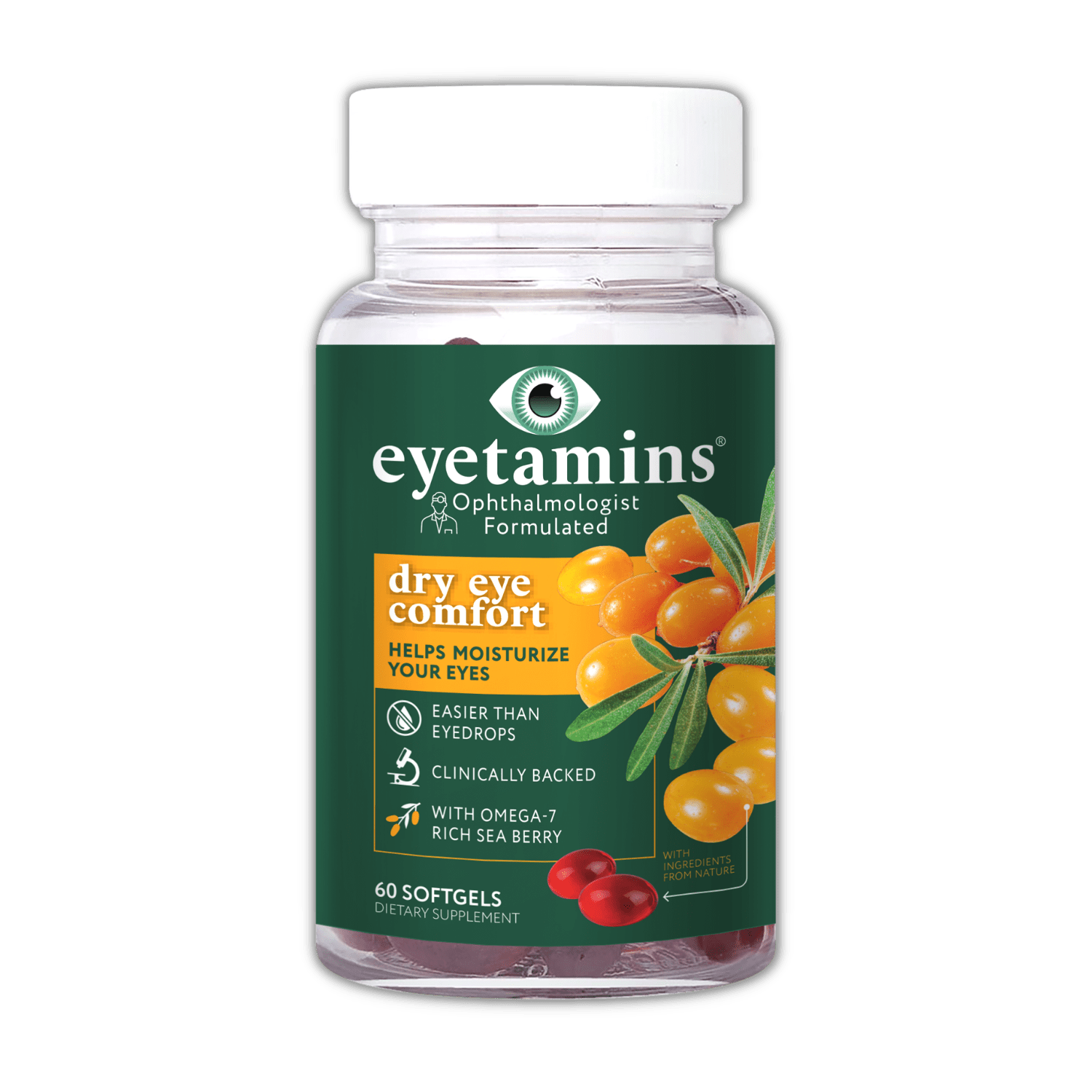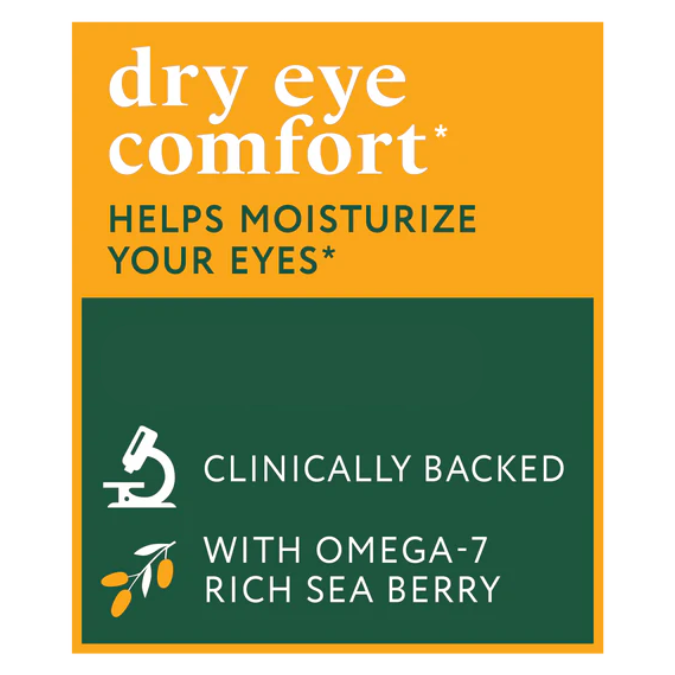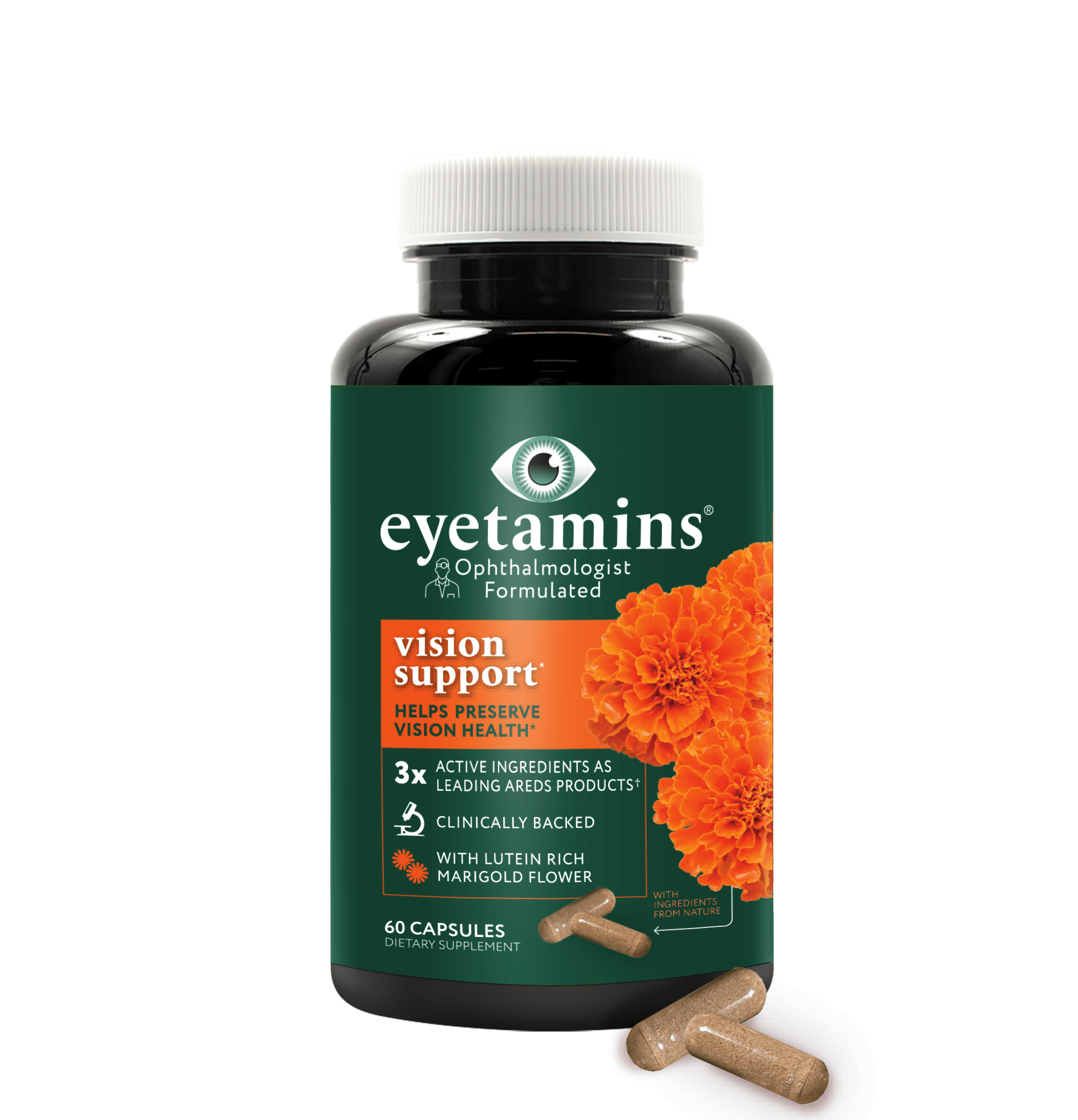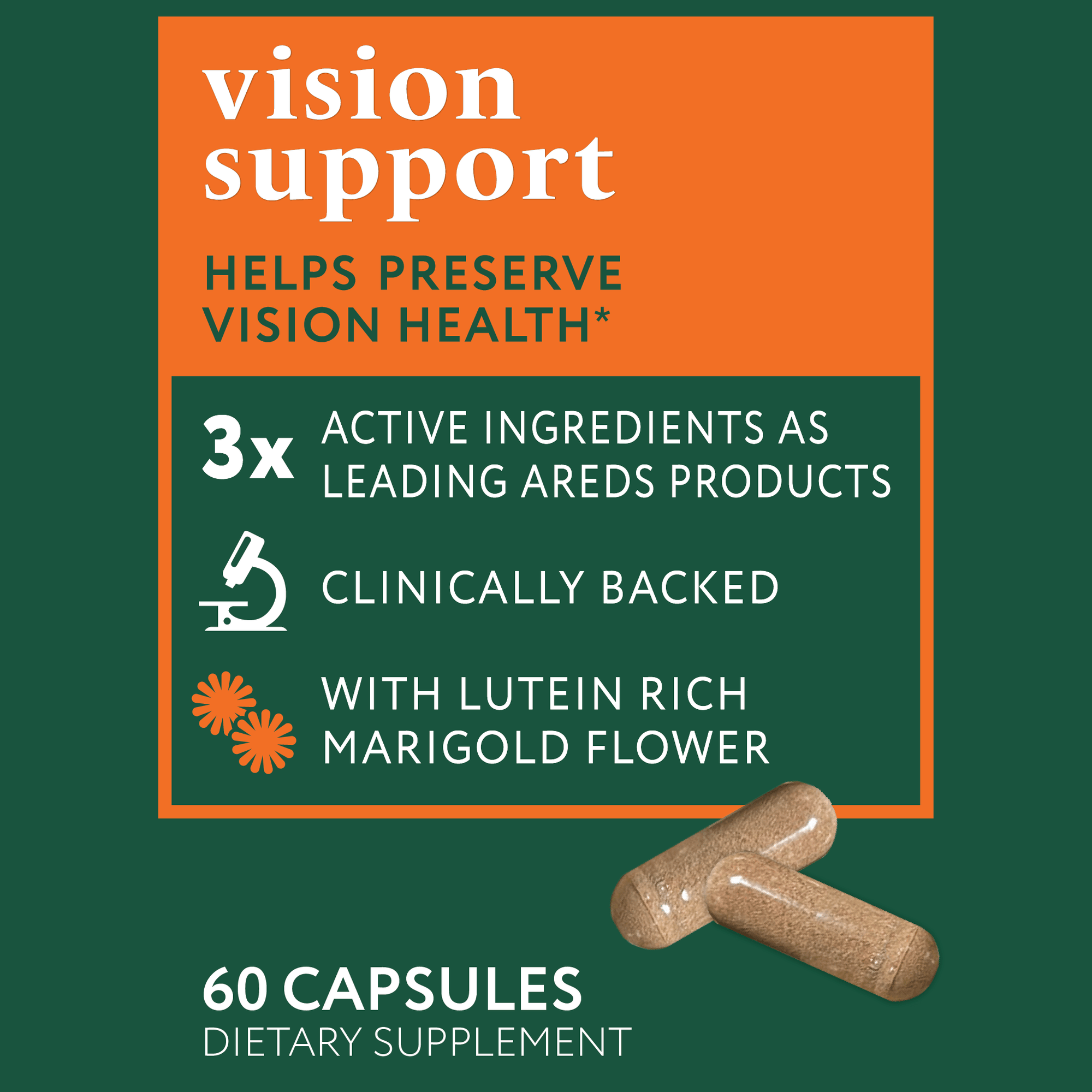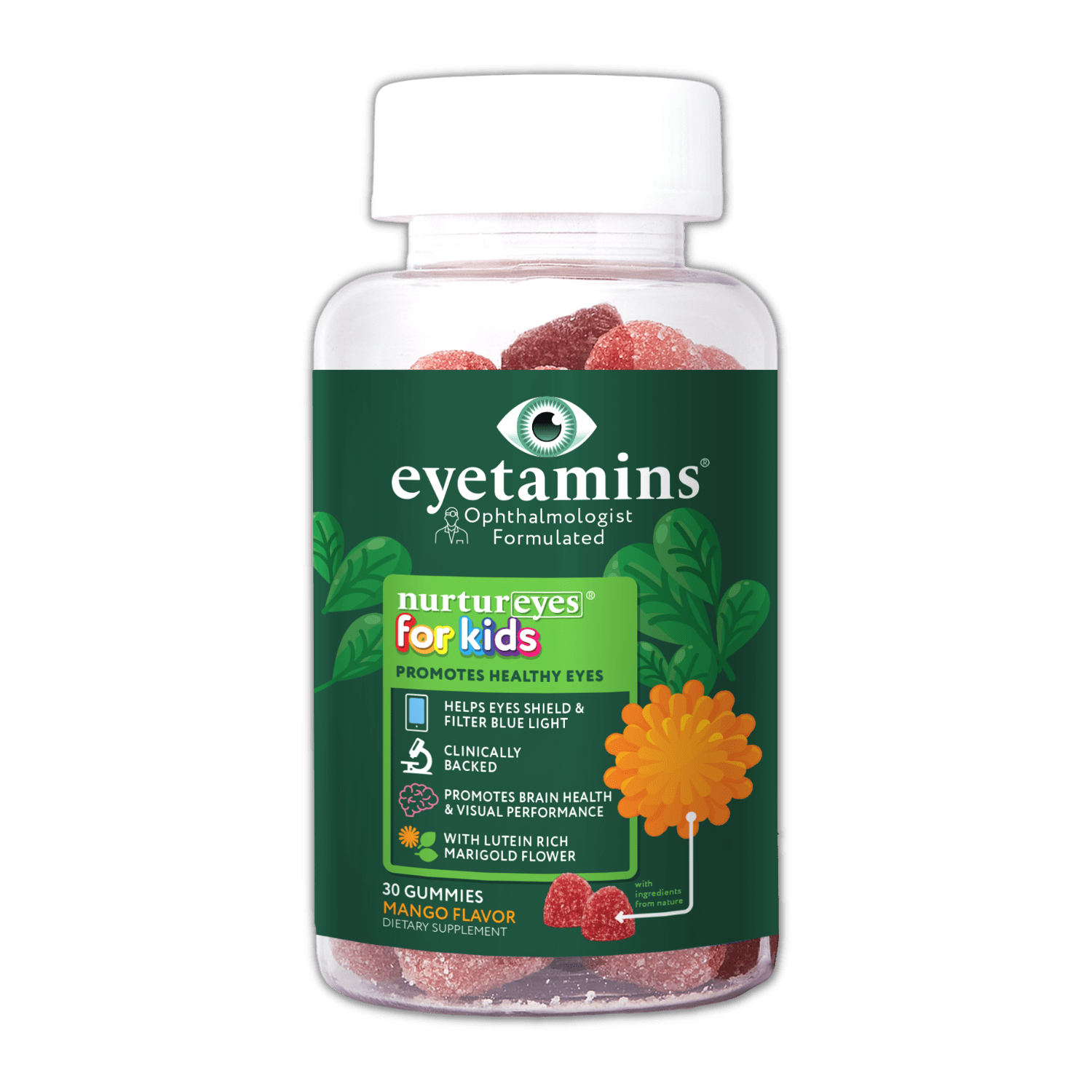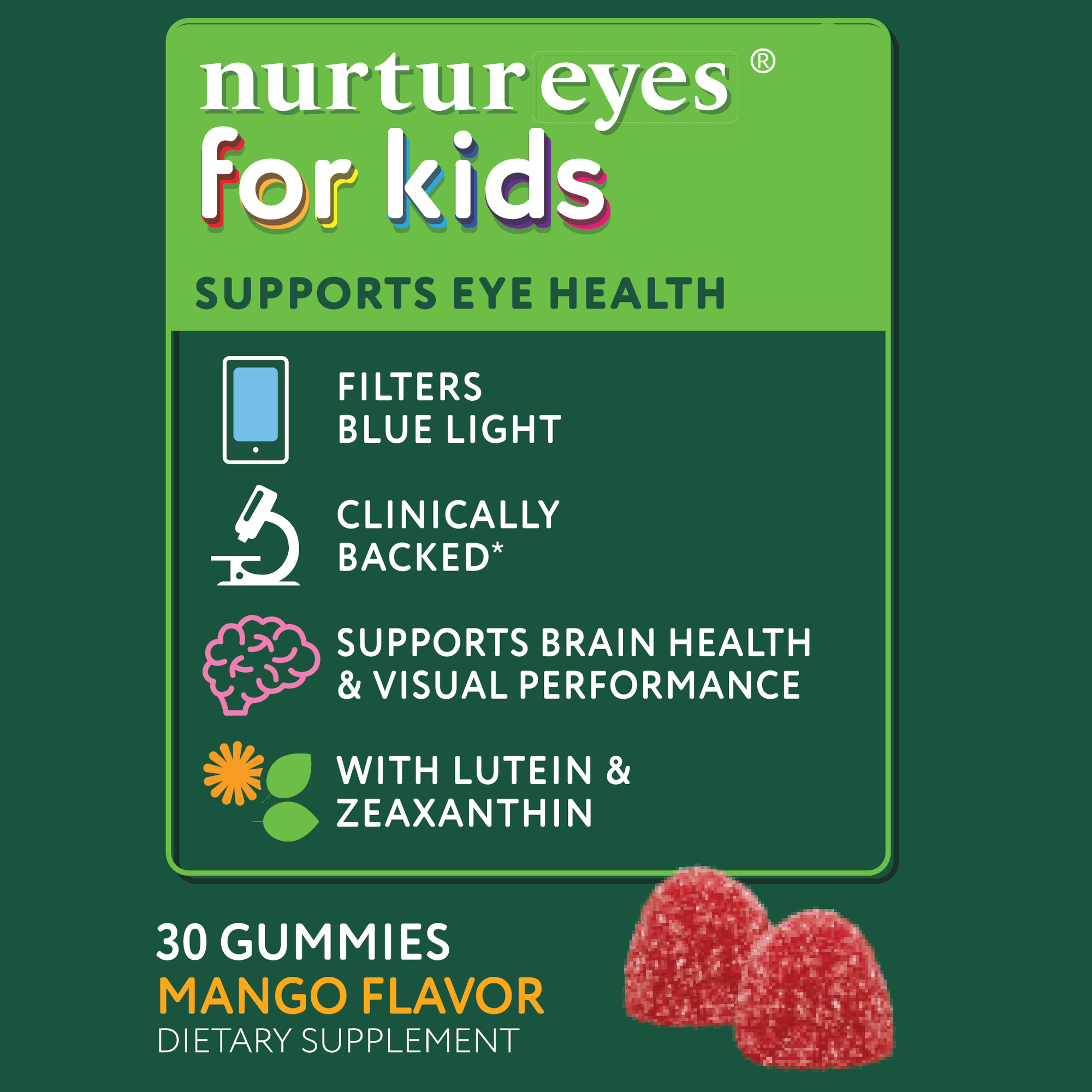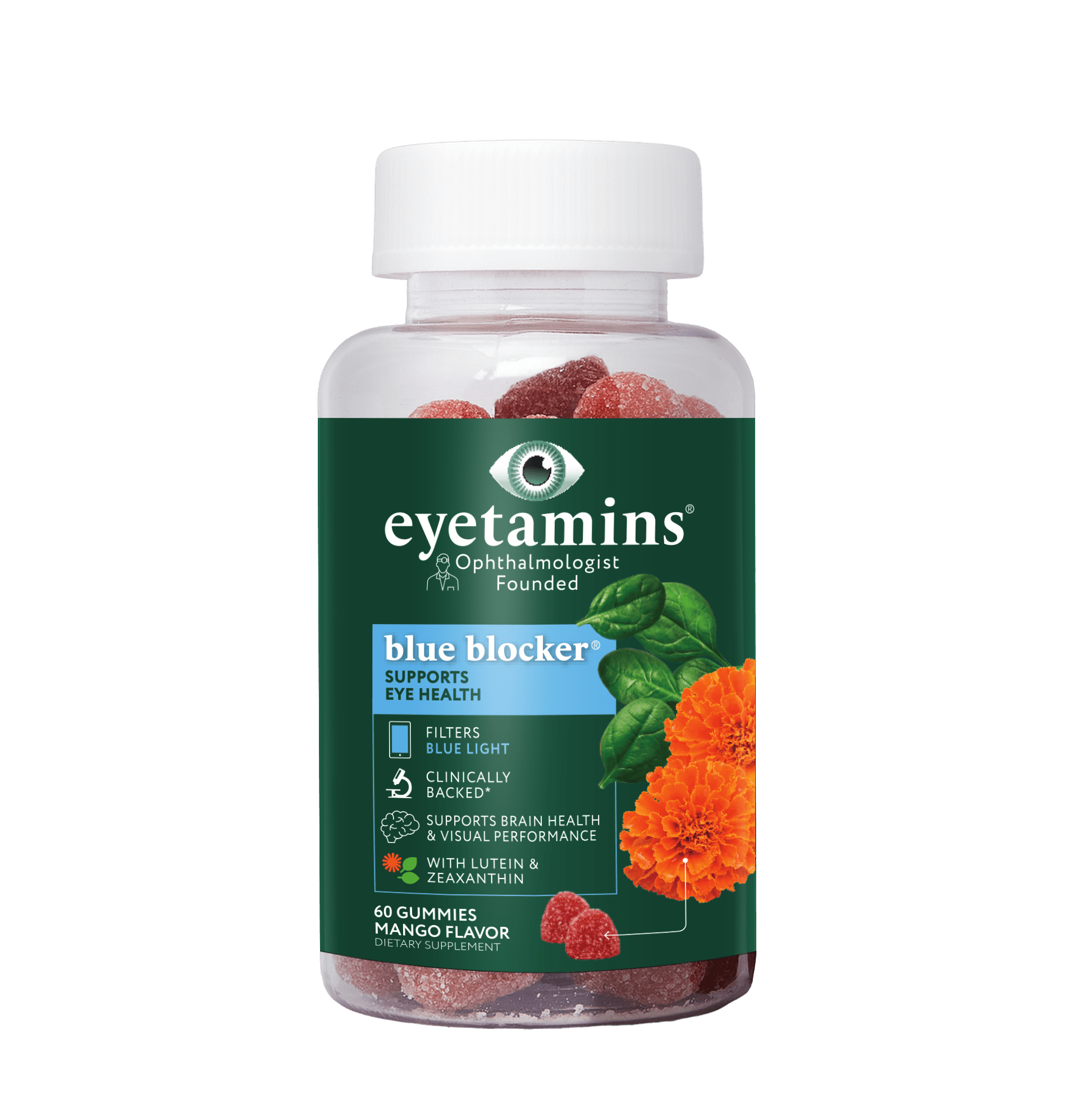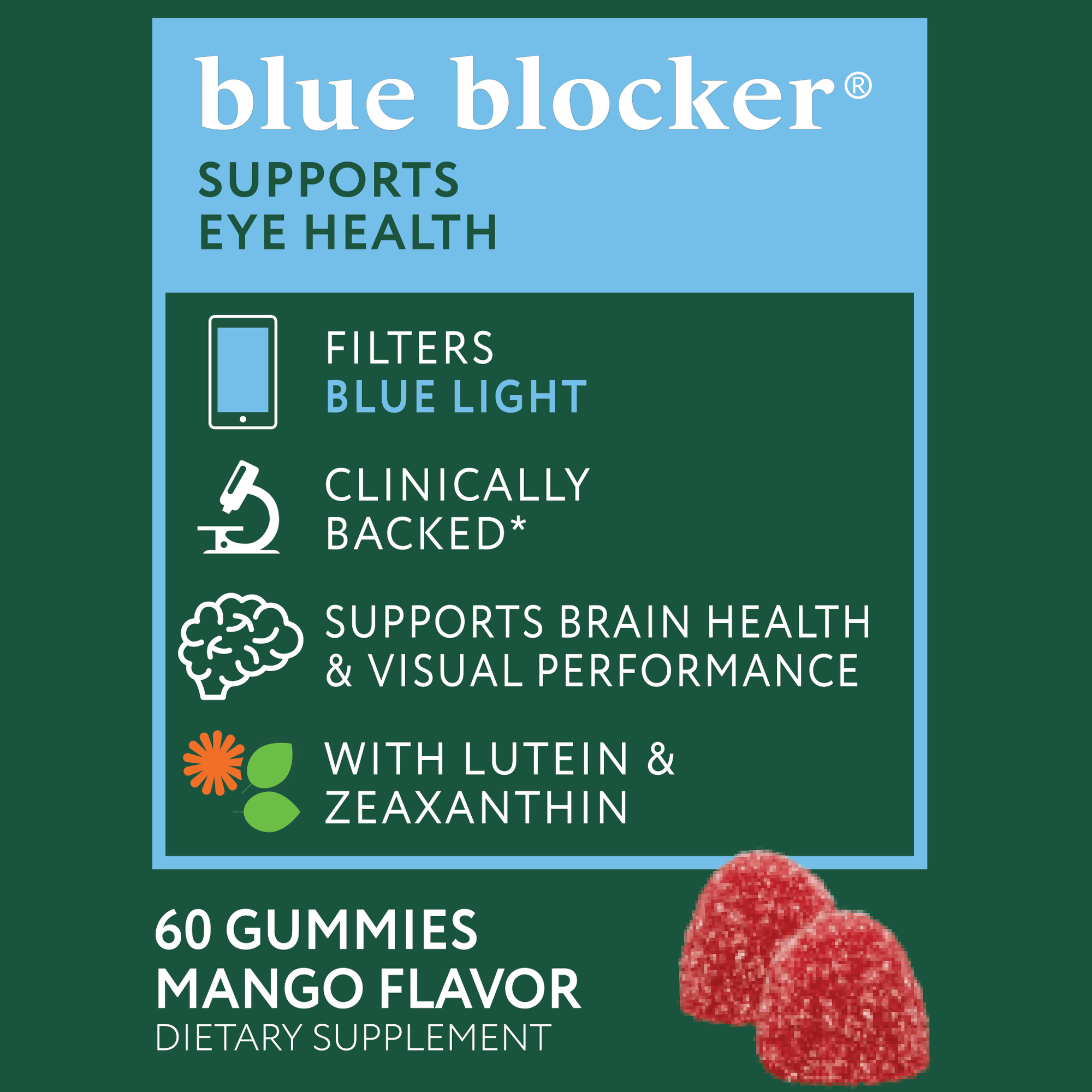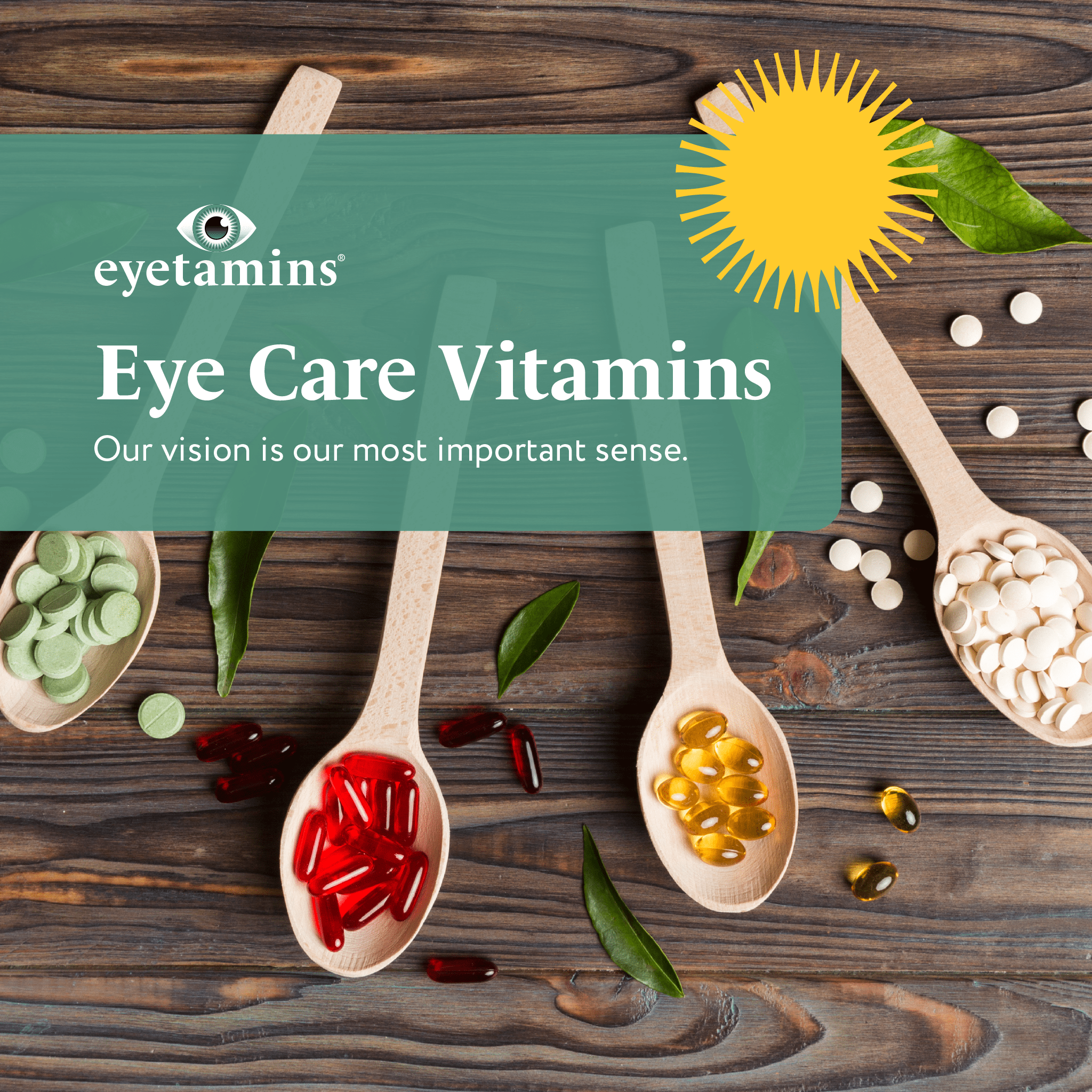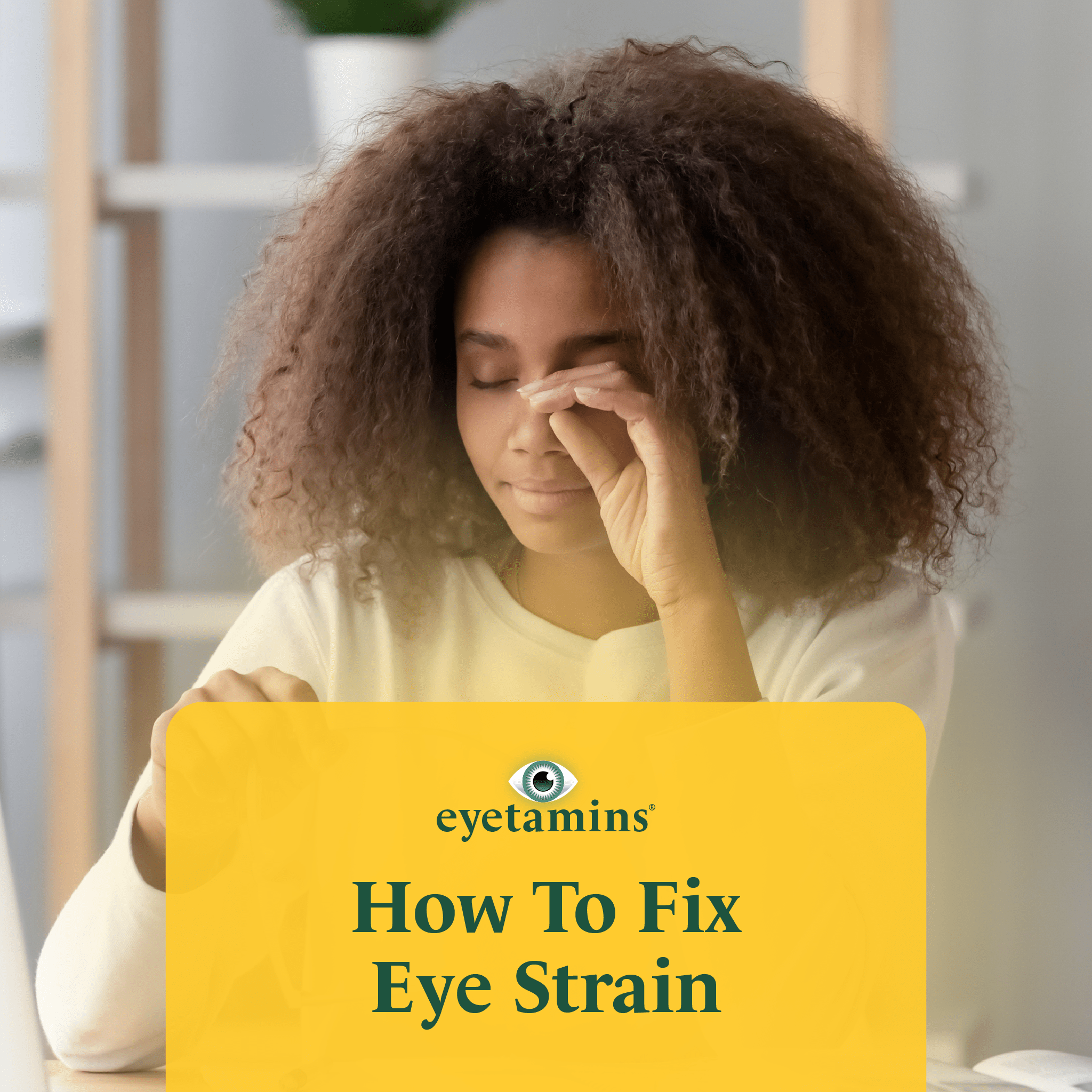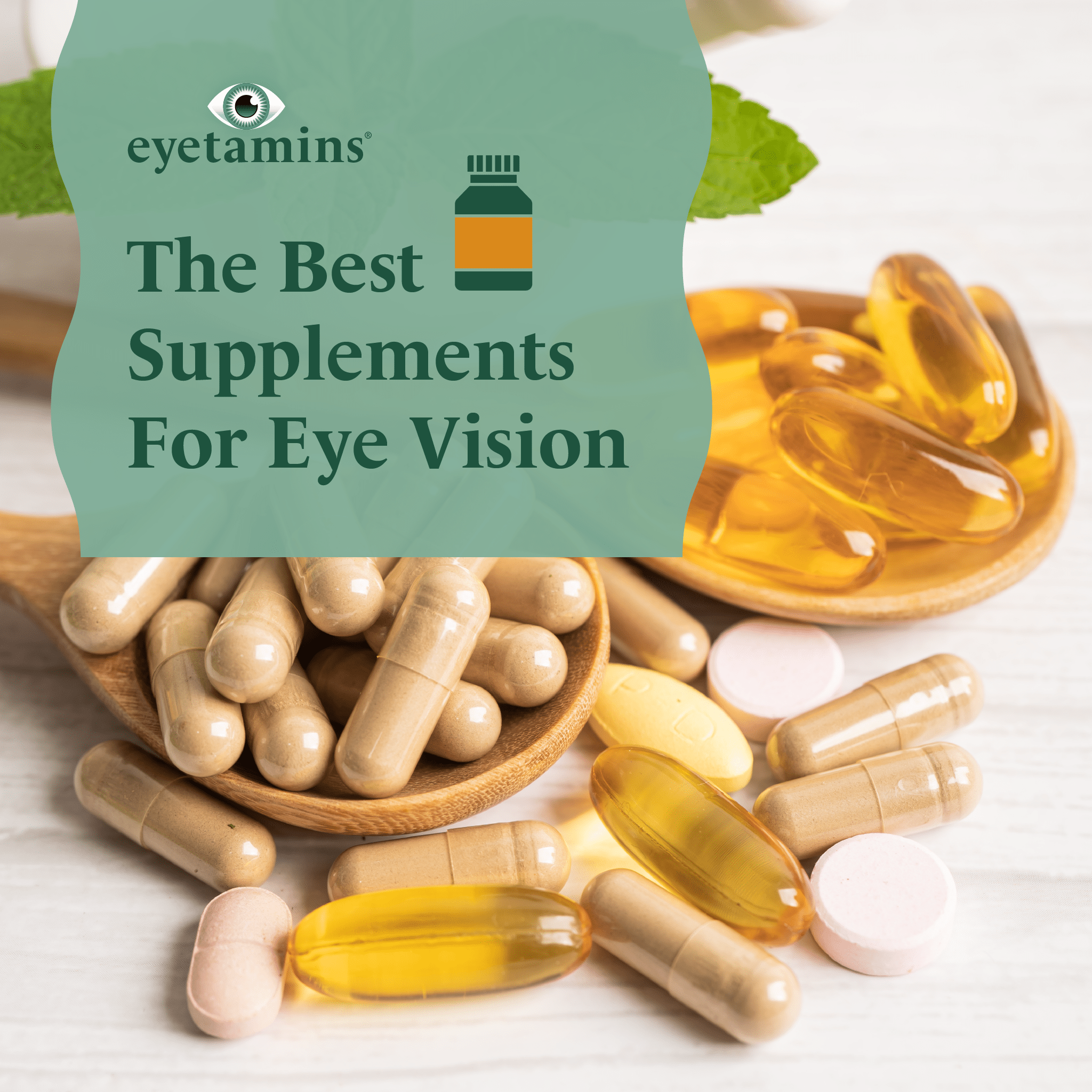· By Kaushal M. Kulkarni, M.D.
How Better Nutrition Can Improve Your Eyesight
When it comes to eye health, that old adage “you are what you eat” is especially true. Just as good nutrition is required for every other part of your body to function well, so too are the right nutrients required for proper eye health.
In fact, eating certain foods, avoiding others, and taking the right vitamins can lessen your chances of developing a slew of other eye conditions.
In this article, we take a closer look at which nutrients are vital to proper eye function, which foods are best for eye health, and which foods should always be avoided.

Nutrients for Eye Health
Research shows that certain nutrients and vitamins play a large role in proper eye function. Such nutrients include:
- Lutein and Zeaxanthin: Lutein and Zeaxanthin are two carotenoid antioxidants that are usually referred to together. Most notably, these two vital nutrients are absorbed by the retina, where they act as a sort of natural sunblock for your eyes. As such, they help to decrease your risk of developing issues like age-related macular degeneration (AMD). Good sources of Lutein and Zeaxanthin include egg yolk, red grapes, spinach, and pistachios. Ten mg of lutein and 2 mg of zeaxanthin make up the recommended daily dose. However, it is extremely difficult to get this amount, even with the best diet. That is why many eye doctors recommend supplementation.
- Vitamin C: Great eye health is not possible without Vitamin C. Not only does Vitamin C provide structure to your eyes in the form of a protein, but it also helps protect against other serious issues. Citrus, potatoes, and tomatoes are all good sources of Vitamin C. You should aim for 500 mg of vitamin C daily.
- Vitamin E: Vitamin E is another antioxidant that protects your eyes against free radicals that could cause damage. It has been studied in reducing the risk of progression of age-related macular degeneration. Fruits, vegetables, nuts and seeds, and plant-based oils all have good amounts of Vitamin E.
- Vitamin A: Because of its antioxidant properties, Vitamin A is usually spoken of as an immunity booster. But Vitamin A is also important for your eye health. Fish, leafy vegetables, carrots, and liver all are rich in Vitamin A.
- Zinc: Zinc is used by various parts of your body, and even plays a role in your metabolism and immune system. In the eyes, zinc helps to form the retina’s pigment. As such, proper amounts of zinc can help prevent blurred vision and night blindness. You can ensure you are putting zinc into your body by eating nuts like cashews, peanuts, and almonds.
- Omega-3 Fatty Acids: Omega-3 fatty acids are used by the body to help lubricate your eyeballs and prevent chronic dry eye. Fish, plant oils, and nuts and seeds are all excellent sources of Omega-3s. Omega-7 is also a very potent fatty acid that is rare, but has enormous health and beauty benefits. Dry Eye Comfort by Eyetamins comes from sea buckthorn, which has the highest concentration of Omega 7 in the entire plant or animal kingdom.
Best Foods for Eye Health
- Sea Buckthorn: Incorporating oily fish like tuna, salmon, trout, and sardines into your diet can reverse dry eye, and even protect against some of the dangers of too much time spent in front of the computer screen. This is because fish are loaded with Omega-3 fatty acids, a nutrient vital to good eye health. Mackerel, anchovies, and herring are other good fish options. However, for those who are vegan, or simply don’t want the fishy aftertaste, sea buckthorn is a much better source of Omega fatty acids.
- Seeds: Seeds are a good source of both Omega-3 and Vitamin E. Nutrient-rich seeds like chia seeds, hemp seeds, and flax seeds are easy to purchase and incorporate into your diet as a snack.
- Nuts and Legumes: Like seeds, nuts and legumes are also high in Omega-3 and Vitamin E. Walnuts, peanuts, cashews, Brazil nuts, and lentils are all especially good choices when it comes to boosting your diet with eye-healthy nutrients.
- Citrus: Citrus fruits like oranges, lemons, and grapefruits offer a ton of Vitamin C, an important antioxidant that helps to fight off age-related eye issues.
- Leafy Greens: Any healthy diet should include lots of leafy greens. Rich in Vitamin C, Lutein, and Zeaxanthin, leafy greens like spinach, collard greens, and kale can go a long way in preventing many of the more serious eye conditions.
- Eggs: Eggs, cooked just about any way, are a good source of zinc, vitamin E, and vitamin C. Eggs also contain a lot of lutein and zeaxanthin, which may help to reduce the risk of vision loss later in life.
- Carrots: Carrots have a great reputation as an eye-healthy food, and that reputation is well deserved. Carrots are rich in beta carotene, which gives the carrot its orange color and which the body is able to convert to Vitamin A. Vitamin A is crucial to eye health.
- Sweet Potatoes: Like carrots, sweet potatoes are rich in beta carotene. Additionally, sweet potatoes are an excellent source of Vitamin E.
Water
Water is vital to life! In terms of eye health, water reduces symptoms of dry eye, and keeps your eyes lubricated.
Worst Foods for Eye Health
- Simple Carbohydrates: Simple carbohydrates like pasta and white bread are absorbed by the body very quickly. Because carbs contain a lot of sugars, eating them leads to a sugar spike within the body. T
- Processed Meats: As with (almost) anything, processed meats in moderation are okay. But processed meats like deli meats, bacon, and sausages are loaded with salt. Too much salt in the diet can cause a number of health issues, including some within the eye that can lead to blurred vision or vision loss.
- Fried Foods: Fried foods are fried in trans fats, and are well known for their potential to lead to heart disease, type 2 diabetes, and stroke. In terms of eye health, fried foods also tend to create free radicals – dangerous molecules that damage and kill cells in your eyes.
- Margarine and Cooking Oils: For many years, margarine was considered a healthier alternative to butter. But with additional research, we are finding that isn’t exactly accurate. Margarine consists of large amounts of trans fat, which increases both your cholesterol levels and your chances of developing eye problems and heart disease. Many cooking oils also have large amounts of the unsaturated fat linoleic acid, another ingredient that has been linked to eye issues. Sunflower, safflower, soybean, sesame, and corn are all types of cooking oils that should be avoided.
- Caffeine and Sodas: Believe it or not, that cup of morning coffee or soda with dinner could be contributing to intraocular pressure – that is, increased pressure inside of your eye. Increased eye pressure paired with issues like ocular hypertension and/or glaucoma could lead to blindness.
Eye Health Supplements
If you are concerned about getting enough eye-healthy foods (or you are really worried about giving up that daily cup of coffee!), then you should consider adding an eye-health supplement to your daily routine. Vitamins like Vision Support by Eyetamins or our eye health gummies are scientifically formulated to help you get the right doses of the right vitamins to keep your eyes at their best.
People Also Ask
1. Can you get 20/20 vision back naturally?
Apart from LASIK eye surgery, there is no natural way to restore 20/20 vision. You can, however, delay any future deterioration by getting routine eye exams, properly wearing contact lenses or glasses, and following an eye-healthy diet.
2. Is organic food good for your eyes?
The best foods for your eyes are things like leafy green vegetables, citrus fruits, lean meats, and nuts and seeds. Often available as organic, these foods provide your eyes with the proper nutrients they need to delay or prevent serious age-related eye conditions.
3. Is spicy food bad for your eyes?
While some ophthalmologists and other medical professionals insist there is a link between spicy food and a negative effect on your vision, there is currently no scientific proof that this is accurate.
4. What are the best foods for your eyesight?
Fish, lean meats, carrots, sweet potatoes, and eggs are just a few of the foods that are best for your eye health.
Conclusion
It is so important to take care of your eyes, and one of the easiest ways to do just that is to follow a nutritious diet. Ensuring you are receiving the recommended daily amounts of vitamins E and C, vitamin A, omega-3 and omega-7 fatty acids, and lutein, and zeaxanthin will go a long way in preventing serious eye conditions.


